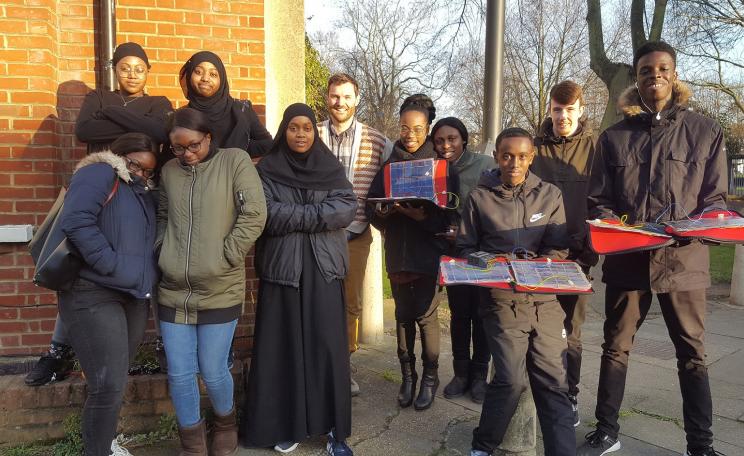-
Winter is coming. Millions of zombie-like gas boilers are roaring into life as we attempt to ward off the cold in our draughty homes.
For a country that moans more about the weather than Jon Snow, our homes are poorly prepared for the seasonal chill. Worse still we have ignored the predictions of scientists and continued to build homes whose worth is measured in granite worktops and Zoopla estimates rather than warmth, comfort and energy efficiency.
The average UK home has a net energy demand of 18,800 KwH – for heat and power. The current standard for new build homes would reduce that by about half. But there’s still a long way to go before our homes make a positive contribution to net zero by 2050.
Real culprit
The average household pays £1,385 per year in energy costs. Current standards make quite a dent in that bill but what if we could reduce that energy demand not by 50 percent but by 93 percent?
Instead of blaming rising energy bills on renewables, we should recognise that the real culprit is a lack of investment in greener, better homes that need less energy in the first place.
The dichotomy is often seen in terms of consumer choice versus cost. For most people buying or building a green home is like buying a Tesla; rare, green bling for the few not the many.
The assumption is that being green doesn’t pay and that a world of cheap green measures is still a way off. Developments like Goldsmith Street in Norwich are lauded because they are the exception that proves the rule.
Not unlike Jon Snow, we know nothing.
Greener homes
The real problem stopping us building greener homes now, rather than at varying future dates now being promised in different parties’ election campaigns, is money.
Specifically, the way developers make money from financing new homes. Since the middle of the twentieth century the pace of house building has been largely driven not by market demand but by the cost and availability of credit based on the current and future market value of homes.
For developers, every second counts once a home has been built to get it sold and book the profits to move onto the next development.
Anything that is perceived to be a cost (rather than creating long term value) is avoided in the name of profit – whether that is greener building standards or percentages of affordable homes haggled over in planning negotiations.
Changing the rules
A pioneering housing developer, Octevo, has decided to change the rules of the ‘game of homes’ and build affordable homes for rental using a finance model based on long term value rather than short term speculation.
Their latest project Liverpool Community Homes will build 37 affordable homes incorporating a raft of green measures, including ground source heat pumps, solar panels, water efficiency and energy efficiency improvements, that reduce each home’s energy use by 80 to 93 percent compared with the average.
So not only is the rent affordable but the bills are too. Savings of a thousand pounds a year can make a real difference to families and add up to a lot over the life of a home.
My company Abundance has a long term relationship with Octevo; we helped them raise funds for two previous social housing developments in the Liverpool area. This is their greenest yet and is a response to feedback from our customers as well as their financial support. It shows we can create affordable homes that make low carbon living possible for everyone.
This Author
Bruce Davis is managing director of Abundance Investment, which advertises with The Ecologist.







